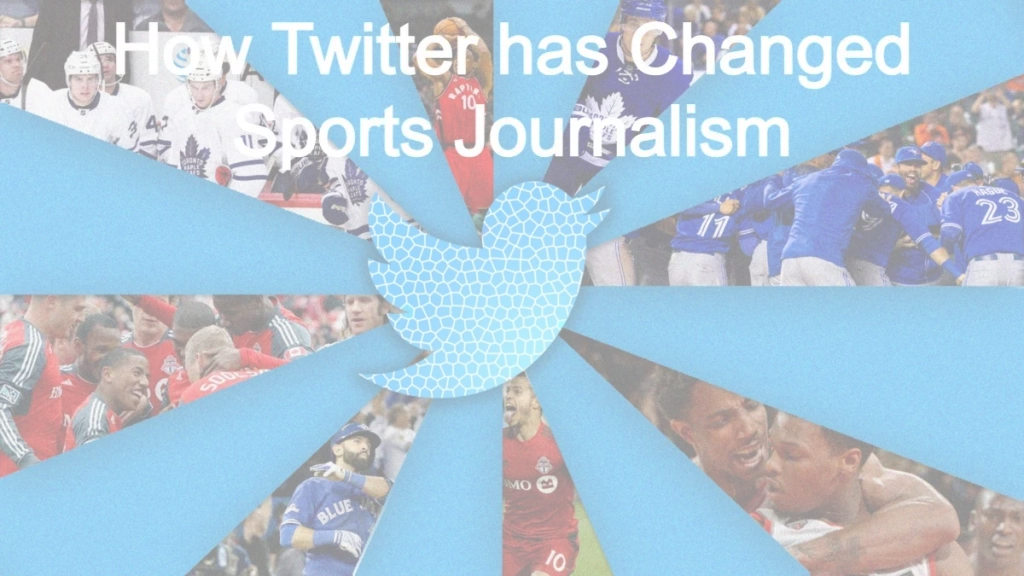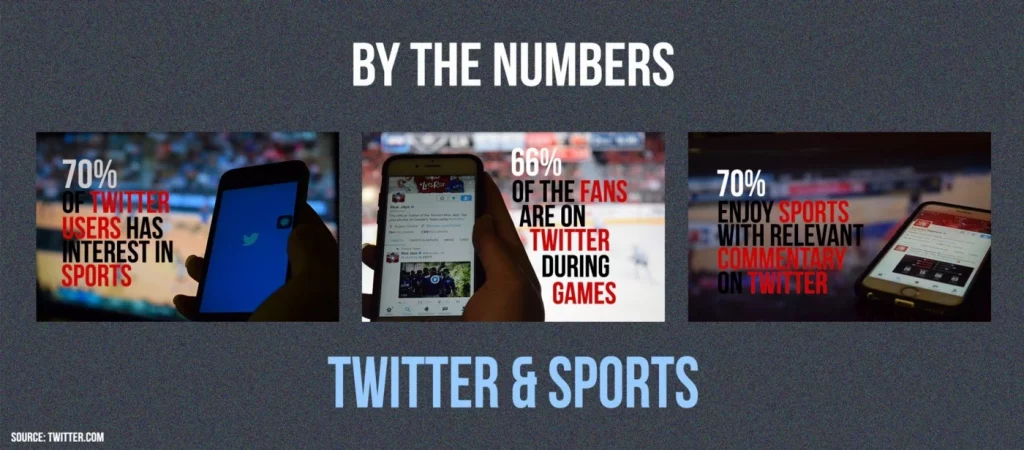Twitter might not have as many daily active users as some other social media platforms such as Facebook, YouTube, and TikTok. Still, there is one area where the platform reigns supreme: journalism.
When it comes to the news, and particularly sporting news, the short format and immediacy of Twitter make it the ideal place for reporters to post the latest updates before, during, and after each game.
The job of a sporting journalist used to consist of traveling to games, interviewing managers and players, then creating a write-up after the game was complete. Today, posting on Twitter is as vital as all those tasks, perhaps even more so.
After all, traveling to a game is optional in the modern era, allowing video streaming to replace many tasks that could only be done in person.

A Twitter World Cup
The importance of Twitter to world sports has been increasing at a steady pace for years now and was already a critical area of concern for sports journalists that were covering the 2018 Russia World Cup.
The 2022 Qatar World Cup, however, will see the importance of Twitter elevated higher than ever before. When the first matches between Qatar vs. Ecuador, Senegal vs Netherlands, and England vs Iran kick off later this month, sports journalists will already have been covering the tournament in detail for at least a fortnight.
The sporting reporter of 2022 needs to build their own audience via Twitter if they want to ensure themselves a successful career within the industry.
It’s important to choose your side; by covering every team in detail, you will likely end up as a “jack of all trades” that won’t appeal strongly to anyone.
Instead, posting the breaking news, player injury updates, roster changes, and managerial quotes for a specific team or team(s) is almost certain to be where the big money – and hence future – can be found.
However, not everybody is convinced that these changes are for the best, with some preferring the older style of sports reporting via television and the newspapers.
The progress of technology waits for no man, however, and the most invested audiences will always flock to a platform such as Twitter, where information is posted with great immediacy.
Why Twitter Works for Sport
Twitter users select the people they would like to follow, so if there is a particular sports reporter that seems especially in tune with their personal tastes and preferences, why not choose to follow them directly rather than a sporting news channel that covers everything?
One reporter that has taken to this new Twitter-based sporting news cycle is WEEI Sports Radio Network’s Ryan Hannable, who covers the New England Patriots.
He said, “It’s so easy to connect with audiences and get the news out quickly in a 24/7 news cycle. There’s also the engagement component, which is always good to get feedback on things and a sense of what an audience wants to read, see and hear.”
Twitter has caused a paradigm shift in how many sports reporters interact with their audiences, who previously wrote blogs to post on their company websites with details of what had happened throughout a game.
That type of coverage has now become almost obsolete, as Twitter allows reports such as Hannable to get their thoughts out much faster. The moment something happens in a game or at a press conference, the reporter or one of their team will have mirrored that update via the Twitter platform, allowing fans to stay just as up-to-date as the journalists.

The Tough Part
Twitter undoubtedly allows sports reporters to be more efficient and connect with their readers much more frequently and effectively than ever before. At the same time, curating this Twitter identity is not without its costs.
For example, WEEI Sports Radio Network does not require its employees to use Twitter; the work that reporters such as Hannable are doing over there is all part of building their reputation as one of the most reliable, trustworthy news sources in the game.
It could be argued that it is building his brand for the future rather than his employer.
Once a sporting journalist begins to use Twitter, however, their employer will likely enjoy the attention their postings bring and expect them to maintain this new outlet.
On another side of the equation, it is difficult for many reporters to escape the feeling of letting their followers down if they do not tweet out every update that they possibly can.
As the World Cup kicks off in Qatar this month, watching how Twitter’s progress as the top platform for sports reporting develops and changes will be interesting.
Most reporters agree that the platform has had a positive impact on their work overall, and there is no doubt that the most diehard fans love their newfound ability to stay up-to-the-minute on the very latest sporting news.